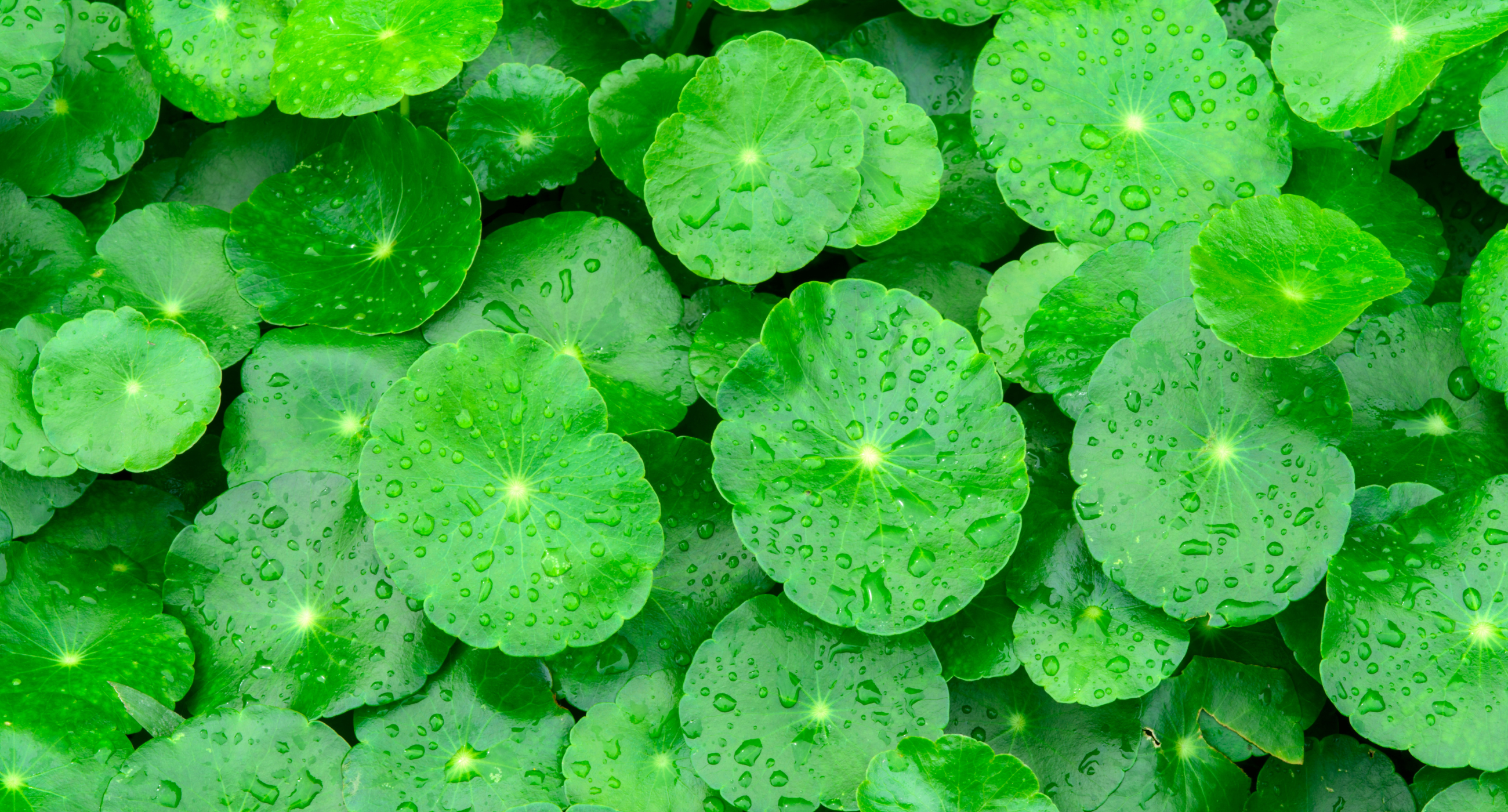
Gotu Kola
Scientific Name: Centella asiatica
Herbal Profile of Gotu Kola (Centella asiatica)
Botanical Name:
- Centella asiatica
Common Names:
- Gotu Kola
- Indian Pennywort
- Asiatic Pennywort
- Brahmi (in some traditions, though this can refer to Bacopa monnieri)
Family:
- Apiaceae (Parsley family)
Parts Used:
- Aerial parts (leaves and stems)
Active Constituents:
- Triterpenoid Saponins: Asiaticoside, madecassoside
- Flavonoids: Quercetin, kaempferol
- Sterols: Sitosterol, campesterol
- Essential Oils
Primary Actions:
- Nootropic (cognitive enhancer)
- Adaptogenic (helps the body cope with stress)
- Antioxidant
- Anti-inflammatory
- Circulatory tonic
- Vulnerary (wound healer)
Traditional and Historical Uses:
- Cognitive Support: Used traditionally to improve memory and brain function.
- Skin Healing: Applied for skin conditions such as eczema, psoriasis, wounds, and burns.
- Venous Health: Used to improve circulation, particularly for varicose veins and chronic venous insufficiency.
- Stress Relief: Traditionally used to reduce anxiety and promote relaxation.
- Longevity: In Ayurvedic and Chinese medicine, it is considered a longevity herb, enhancing vitality and overall health.
Modern Uses:
- Cognitive Enhancement: Helps with memory, focus, and mental clarity. Often used in brain-supporting supplements.
- Venous Insufficiency and Varicose Veins: Strengthens blood vessel walls and improves circulation, reducing symptoms such as swelling and heaviness in the legs.
- Wound Healing and Skin Health: Applied topically or taken internally to accelerate wound healing and reduce scarring.
- Anxiety and Stress Reduction: Reduces symptoms of anxiety and helps the body adapt to stress.
- Antioxidant Activity: Protects cells from oxidative stress and supports overall cellular health.
Forms of Administration:
- Capsules/Tablets: Standardized extracts are available for cognitive and circulatory benefits.
- Tincture: Alcohol-based extract taken internally.
- Teas/Infusions: Dried leaves are steeped to make a tea for internal use.
- Topical Applications: Creams and ointments are used for wound healing and skin care.
- Powder: Can be added to smoothies or other beverages.
Dosage:
- Capsules/Tablets: 300–500 mg of standardized extract, 2–3 times daily.
- Tincture: 2–4 ml, taken 2–3 times a day.
- Tea: 1–2 teaspoons of dried herb per cup of boiling water, steeped for 10–15 minutes, consumed 2–3 times daily.
- Topical Use: Applied to affected areas for wound healing or skin conditions.
Safety and Precautions:
- Pregnancy and Breastfeeding: Not recommended due to insufficient safety data.
- Potential Side Effects: May cause headache, dizziness, or gastrointestinal upset in some people.
- Liver Health: Prolonged use at high doses may affect liver function.
- Allergic Reactions: Rare but possible when applied topically.
Key Benefits:
- Improves Cognitive Function: Supports memory, focus, and overall brain health.
- Boosts Circulatory Health: Strengthens veins, improves blood flow, and relieves symptoms of venous insufficiency.
- Supports Wound Healing: Accelerates healing of wounds and reduces scarring.
- Reduces Anxiety and Stress: Calms the nervous system and helps the body cope with stress.
- Acts as an Antioxidant: Protects against free radical damage.
Sustainability:
- Widely cultivated and not at risk of overharvesting, making it a sustainable choice for herbal use.
Summary:
Gotu Kola is a versatile and powerful herb used for cognitive enhancement, wound healing, circulatory support, and stress reduction. It has a long history in both traditional and modern herbal medicine, known for promoting brain health, skin repair, and vascular integrity.
